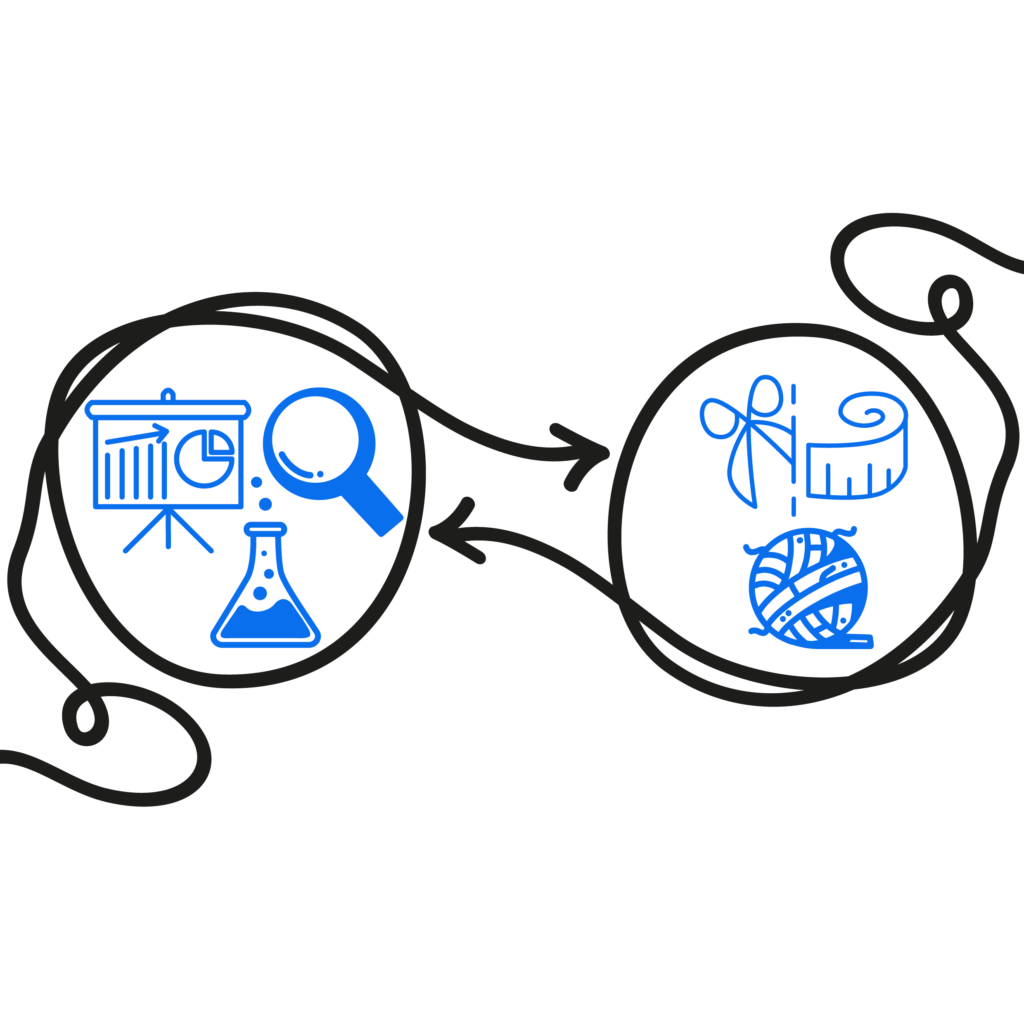
An Impact Innovation Funded Project

Priority Area:
Circular Knowledge Systems
Bio-Couture: Empowering Sustainable Fashion and Manufacturing with Bio-based Materials
The fashion industry, a major global polluter, faces environmental challenges from synthetic materials that contribute to chemical waste and microplastic pollution. In response, bio-based materials (Bio-BMs) like bacterial cellulose and mycelium-based leather have gained interest for their sustainability benefits, being renewable and biodegradable. However, a lack of comprehensive frameworks to assess their environmental impact limits their potential. This project aims to bridge that gap by conducting a Life Cycle Assessment (LCA) of Bio-BMs, specifically bacterial cellulose leather, to create a detailed sustainability profile. The findings will guide industry stakeholders in adopting Bio-BMs, promoting sustainable practices in the fashion industry.
Name of Lead Applicant:
Job Title:
Organisation:
Additional Team Members:
Dr. Yuyuan Shi
Lecturer in Fashion
Northumbria University
Dr Zafar Ahmed – Assistant Professor in Social Work, Education and Community Wellbeing (Northumbria University)
Professor Meng Zhang – Professor in Microbial Biotechnology (Northumbria University)
Professor Martyn Dade-Robertson – Professor of Emerging Technology (Northumbria University)
The development of a comprehensive framework will guide the application of Bio-BMs in the fashion industry. This framework will serve as an exemplary model for integrating next-generation materials into sustainable fashion contexts.
- A comprehensive guide will document specific material properties, fabrication techniques, and design methodologies, providing a valuable reference for future research and industry applications.
- Evidence database: Parameterise the models for the compressive analysis of Bio-BMs application in fashion and inform the development of customise LCA and analysis for the environment impact
- Industry Influence: By sharing our findings with stakeholders via UKTF, we aim to inform and influence the sustainable fashion market, promoting the industry-wide adoption of bio-based materials.
By integrating cross-disciplinary expertise and fostering collaborative innovation, our project will not only advance the application of Bio-BMs in fashion but also create a sustainable foundation for future developments in the field. This will benefit both disciplinary development and the broader goal of sustainable fashion.
Expected start date: 1 November 2024
Expected end date: 1 September 2025
Project duration: 10 months
